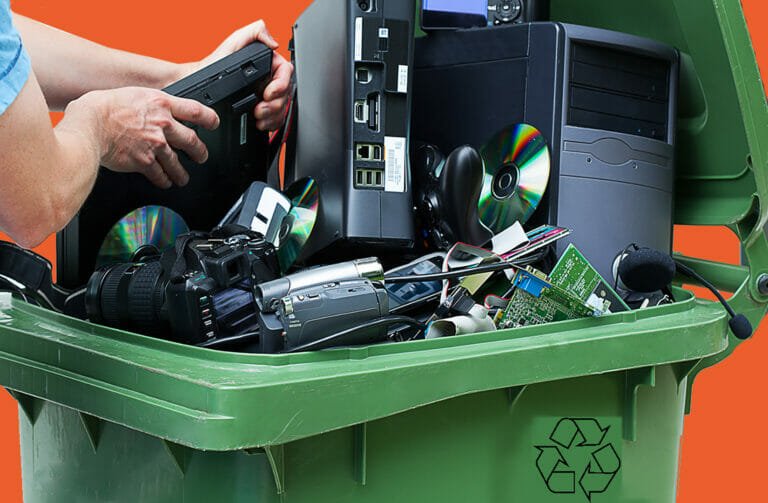Electronic Waste in Kelva Road
Electronic waste, commonly referred to as e-waste, has emerged as a pressing environmental and public health concern worldwide. As the rapid pace of technological advancement continues, the disposal of obsolete electronic devices poses significant challenges. In the context of Kelva Road, a region known for its scenic beauty and vibrant community, the issue of e-waste management warrants attention.
Introduction to Electronic Waste (E-Waste)
Electronic waste encompasses discarded electrical or electronic devices, including computers, smartphones, and household appliances. The proliferation of electronic gadgets in modern society has led to a surge in electronic-waste generation, highlighting the need for sustainable management practices.
Understanding Electronic Waste Management
Proper disposal of electronic-waste is essential to mitigate its adverse effects on the environment and human health. Improper handling of electronic devices can result in the release of hazardous substances such as lead, mercury, and cadmium, contaminating soil, water, and air.
Overview of Kelva Road
Kelva Road, situated in [mention location], is renowned for its picturesque landscapes and cultural heritage. However, like many other regions, it grapples with the challenges of waste management, including the growing burden of electronic waste.
Electronic Waste Scenario in Kelva Road
With the increasing adoption of electronic devices in Kelva Road, the volume of e-waste generated has witnessed a steady rise. Unfortunately, the region lacks adequate infrastructure and mechanisms for the proper disposal and recycling of electronic waste, exacerbating environmental concerns.
Environmental Impact of E-Waste in Kelva Road
The improper handling of electronic-waste in Kelva Road has significant environmental repercussions. Contamination of soil and groundwater due to leaching of toxic substances from discarded electronics poses a threat to ecosystems and biodiversity.
Health Hazards Associated with Improper E-Waste Management
Exposure to hazardous chemicals present in electronic-waste can have detrimental effects on human health. Respiratory problems, neurological disorders, and reproductive issues are among the health risks associated with the improper disposal and recycling of electronic devices.
Initiatives and Solutions for E-Waste Management in Kelva Road
Addressing the e-waste challenge in Kelva Road requires concerted efforts from various stakeholders. Government initiatives, coupled with community-driven recycling programs and public awareness campaigns, play a crucial role in promoting sustainable electronic-waste management practices.
Importance of Public Awareness and Education
Educating the public about the importance of responsible e-waste disposal is paramount. By fostering a culture of recycling and waste reduction, individuals can contribute to minimizing the environmental impact of electronic waste.
Role of Technology in E-Waste Management
Technological innovations offer promising solutions for e-waste management, including advanced recycling techniques and tracking systems to monitor the flow of electronic waste. Leveraging technology can enhance efficiency and transparency in the recycling process.
Collaborative Efforts with Local Authorities and NGOs
Collaboration between local authorities, non-governmental organizations (NGOs), and community groups is essential for implementing effective e-waste management strategies. By pooling resources and expertise, stakeholders can address the challenges posed by electronic waste effectively.
Economic Opportunities in E-Waste Recycling
E-waste recycling presents economic opportunities, including job creation and the recovery of valuable materials from discarded electronics. Encouraging entrepreneurship in the recycling sector can stimulate economic growth while promoting environmental sustainability.
Challenges and Roadblocks
Despite efforts to address e-waste management, several challenges persist, including inadequate infrastructure, limited resources, and cultural barriers to recycling. Overcoming these obstacles requires a multi-faceted approach and sustained commitment from stakeholders.
Future Prospects and Trends
Looking ahead, advancements in e-waste management technology hold promise for more efficient and sustainable solutions. Embracing circular economy principles, which emphasize resource efficiency and waste reduction, will shape the future of e-waste management in Kelva Road.
Conclusion
In conclusion, addressing the issue of electronic waste in Kelva Road requires collaborative action and innovative solutions. By raising awareness, fostering partnerships, and leveraging technology, we can mitigate the environmental and health risks associated with e-waste while unlocking economic opportunities for sustainable development.

